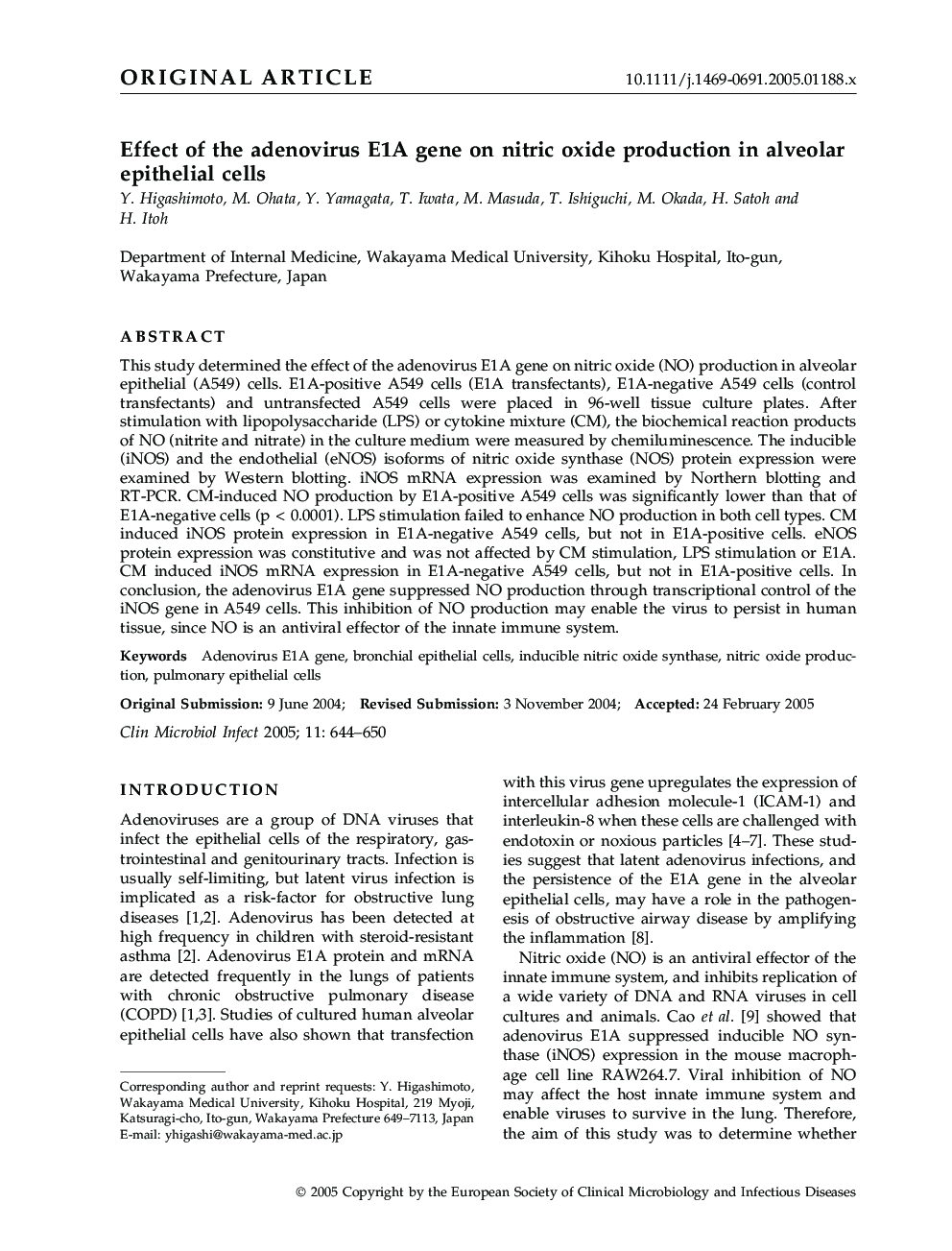| Article ID | Journal | Published Year | Pages | File Type |
|---|---|---|---|---|
| 9275984 | Clinical Microbiology and Infection | 2005 | 7 Pages |
Abstract
This study determined the effect of the adenovirus E1A gene on nitric oxide (NO) production in alveolar epithelial (A549) cells. E1A-positive A549 cells (E1A transfectants), E1A-negative A549 cells (control transfectants) and untransfected A549 cells were placed in 96-well tissue culture plates. After stimulation with lipopolysaccharide (LPS) or cytokine mixture (CM), the biochemical reaction products of NO (nitrite and nitrate) in the culture medium were measured by chemiluminescence. The inducible (iNOS) and the endothelial (eNOS) isoforms of nitric oxide synthase (NOS) protein expression were examined by Western blotting. iNOS mRNA expression was examined by Northern blotting and RT-PCR. CM-induced NO production by E1A-positive A549 cells was significantly lower than that of E1A-negative cells (p < 0.0001). LPS stimulation failed to enhance NO production in both cell types. CM induced iNOS protein expression in E1A-negative A549 cells, but not in E1A-positive cells. eNOS protein expression was constitutive and was not affected by CM stimulation, LPS stimulation or E1A. CM induced iNOS mRNA expression in E1A-negative A549 cells, but not in E1A-positive cells. In conclusion, the adenovirus E1A gene suppressed NO production through transcriptional control of the iNOS gene in A549 cells. This inhibition of NO production may enable the virus to persist in human tissue, since NO is an antiviral effector of the innate immune system.
Keywords
Related Topics
Life Sciences
Immunology and Microbiology
Microbiology
Authors
Y. Higashimoto, M. Ohata, Y. Yamagata, T. Iwata, M. Masuda, T. Ishiguchi, M. Okada, H. Satoh, H. Itoh,
